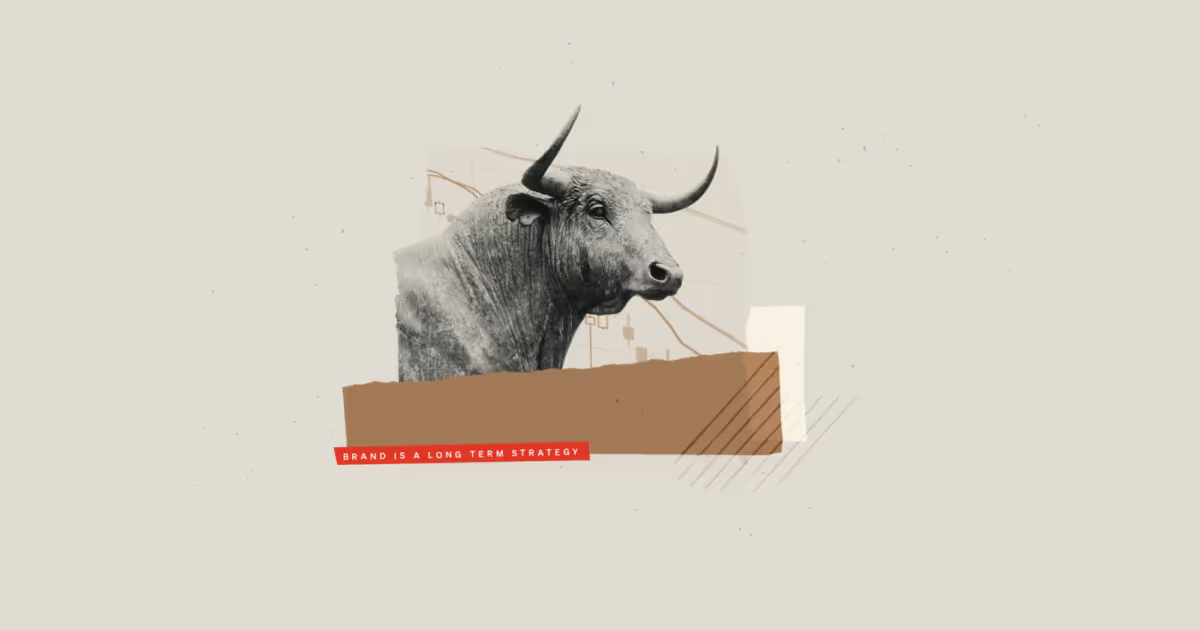This is the time to buckle down and invest in the foundation of your company—your brand—so you can take full advantage of the brighter skies ahead.
The whispers of an approaching recession have filled news headlines, podcast episodes, and conversations amongst friends and families across the country. Concerns about an economic slowdown and rising unemployment—shadowed by memories of the Great Recession in 2007 and, more recently, the COVID-19 recession in 2020—preoccupy the minds of business owners and employees alike. So we talk. And we wait.
I believe the smart business owner prepares for the worst, but the strategic one finds the opportunities to become one of the 10% of companies that flourish during an economic downturn. While recessions are an unavoidable part of the economic cycle, they don’t need to imply doom and gloom. In fact, I’ve found the most adaptable and strategic businesses understand how they can leverage this time to boost their brand to build resilience and (spoiler alert) come out stronger on the other side.
{{divider}}
Recessions are inevitable — failure isn't.
A recession, as defined by the National Bureau of Economic Research, is “a significant decline in economic activity spread across the economy, lasting more than a few months, normally visible in real GDP, real income, employment, industrial production, and wholesale-retail sales.”
It’s a natural period within the economic cycle, characterized by declining customer confidence, a drop in the stock market, and rising unemployment. During this period, businesses can expect to make fewer sales and, as a result, experience a decline in revenue.
The natural response? Cut costs and spending to preserve revenue until the economy recovers. Many business owners will focus on where to cut spending based on strategies to minimize the damage. In doing so, they adopt a survival mindset.
But I believe there’s a better way to approach an upcoming recession. Instead, focus your time and attention on what you need to protect and maintain to make it through the recession stronger. It’s a subtle shift in mindset from loss avoidance to resilience and improvement. In my experience, branding is a critical element in building reliance; but before we get there, let’s first define branding.
{{divider}}
Brand is a long term strategy.
Beyond a name and a logo, your brand encompasses the entire ecosystem around your company that leads to a feeling or perception in the eyes or hearts of your customers. I believe effective brands marry strategy, visual assets, and written communication to present a unified identity to everyone who experiences it—customers, prospects, employees, and stakeholders.
You should think of your brand as a long-term strategy and an investment that extends beyond the physical product or service you offer. Companies that understand this and invest in their brand can benefit from well-defined market positioning, increased customer loyalty, and stronger referrals.
I believe a memorable brand leaves no doubt in the customer’s mind about the unique position they fill in the market. Strong visual and written communication draws from research to ensure that your customers recognize and understand how your company is different, and better, than the competition. This focus and customer alignment can allow you to articulate your business value to your target audience with clarity and confidence. Identify and address your customer’s pain points, fears, hopes, and dreams, and you can garner loyalty that shields you from competition for years to come—even during periods of economic uncertainty. This leads us to the main and final point.
{{divider}}
Focus on brand for guidance in times of trouble.
I believe your brand is the ultimate make-it-or-break-it factor determining your company’s ability to get through a recession and come out stronger in the end. Use this time to invest in and nurture it.
During a recession, consumers have tight wallets and often conserve their budgets by only spending on the essentials. This is not the time to invest in acquiring new customers. Rather, focus on your existing customer relationships. Branding has the power to convince your loyal customers, who already value what you have to offer, that your products and services are “essential.” This uniquely addresses a pain point in a way that no other company can.
Leaning into conversations, asking questions, and actively listening to the customers who have already bought into your company can guide you in the right direction. Identify what your customers need and want, and that can encourage them to continue to buy more. Keep in mind that during a recession, your customers’ needs can and will evolve.
Leveraging a strong brand can provide the opportunity for your company to position itself as an ally during these challenging times. Connect with your customers on an emotional level by demonstrating humanity through warmth and generosity. In my experience, customers remember the brands that make them feel understood and cared for.
Sometimes your business may need to pivot or change by adopting new product or service offerings—and that’s OK. A strong brand that’s based on strategic research and evaluation can offer clarity to both the business owner and the customer so that any changes and updates are aligned with the company’s vision for long-term success.
Brand is the key to resilience in a recession.
Lean into your brand to foster deep customer relationships and stay on course during a recession. Recessions can be scary, but they don’t last forever. And the good news is that a period of high economic growth often follows. This is the time to buckle down and invest in the foundation of your company—your brand—so you can take full advantage of the brighter skies ahead.
Originally published on Fast Company on August 25, 2022.





